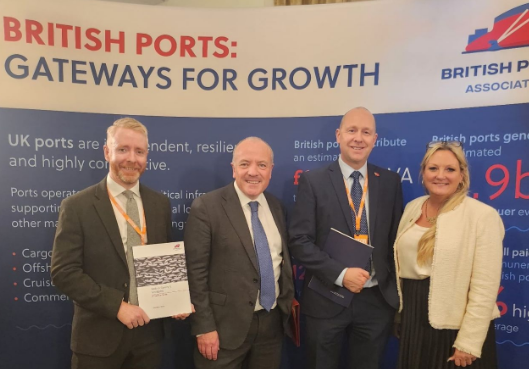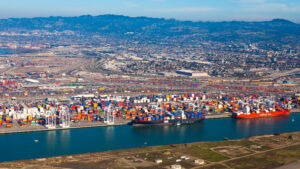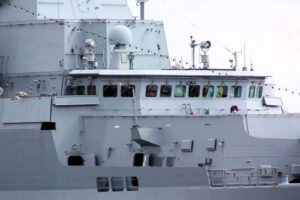The British Ports Association (BPA), the national trade body for UK ports and harbours, has launched new guidance for ports and terminals on combatting modern slavery, people trafficking, and people smuggling at an event at the House of Commons. Maritime Minister Mike Kane MP spoke at the launch, welcoming industry efforts to act against these growing threats.
Speaking at the launch, Mike Sellers director of Portsmouth International Port and BPA chair, said: “I have no doubt it will eventually save lives as our industry plays its part in tackling the scourge of modern slavery and people trafficking.”
Security for container shipping and terminals has long been one of the shipping industry’s biggest challenges. The last decade has seen a rise in smuggling of trafficked people and contraband. What makes shipping containers seemingly vulnerable to security breaches is that of the 500 million containers transporting 90% of the world’s cargo, UNODC estimates only 2% are inspected.
Modern slavery is estimated 50 million globally, equating to 1/150 people, despite the fact that it is difficult to quantify due to reporting constraints.
In the UK during February 2024 enforcement officers seized 5.7 tonnes of cocaine hidden in a shipment of bananas at Southampton, in accordance with the new guide. The drugs, with an estimated street value of £452m, arrived from South America and were in transit to Germany.
The report’s author Lisa Lewis, and risk and sustainability director, Cattewater Harbour Commissioners, Plymouth, as well as senior director of security for Europe region, DP World, explained that the guide is designed around five core recommendations and is scalable so that ports of any size and capacity should be able to use it to improve their posture against the evils of modern slavery and people trafficking as well as smuggling and threats posed by organised crime.
“The goal is better planning, enhanced collaboration and putting in place a culture of empowerment that gives port workers the confidence to challenge things that don’t look right,” she said.
Modern Slavery and Smuggling-A practical guide provides practical information and case studies to help ports develop and implement their own programme to tackle modern slavery and smuggling.
The guide is designed around five core recommendations:
- Having a policy of zero tolerance
- Training port staff on what to look for and how to report incidents
- Collecting, evaluating and sharing data on incident
- Seeking out collaborators in the value chain to coordinate and cooperate with
- Disclosing activity with a modern slavery statement
Andy Billings, group head of security, ABP and chair, BPA and UKMPG security and resilience group, commented: “It’s brilliant to see the ports industry taking proactive steps to address risks and threats with this guide.
“Industry networks allow what is a highly competitive sector to come together and collaborate in areas that need a united front to stop criminals exploiting weak links and blind spots.”



